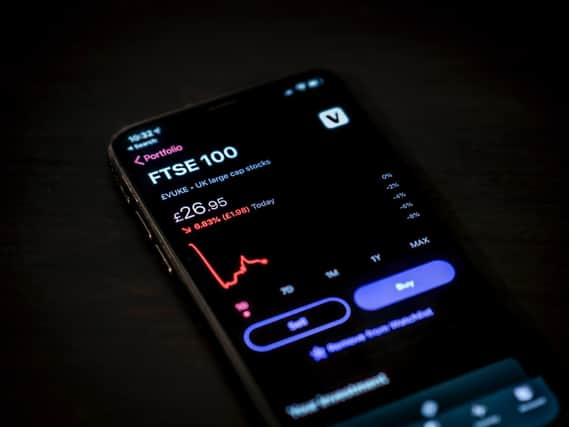Who are the real victims of trading shares on Robinhood?


It may indeed prove to be something of David and Goliath struggle, but the outcome has never been in doubt. Institutional investors still have the most money and therefore the best tech – and on any of the world’s exchanges, money always wins eventually.
This month’s story concerned GameStop, a high street chain in the US that sells the latest computer games. It has been struggling of late, partly because its customers are locked down at home, but mostly because they no longer buy titles over the counter – preferring to download them for more instant gratification.
Advertisement
Hide AdAdvertisement
Hide AdFor this reason, many hedge funds – institutional investors that make money from shares going down as well as up – had bet on the firm’s shares to drop in value, a process known in the business as “shorting”. This, for reasons not fully explained, outraged communities of amateur pundits who treated online investing as just another computer game. Having resolved, in discussion groups on sites like Reddit, to reverse the process and perhaps make a killing, they bought GameStop shares by the cartload, thereby forcing the price up and causing many hedge fund managers to lose their shirts.
This was hailed as a victory for the small investor, but was that really the case? Many of the amateur speculators were using an app called Robinhood, through which they could buy and sell shares without paying commissions or fees. Its name fuelled the romantic notion in some quarters that they were acting purely out of altruism. However, the inconvenient truth is that genuine savers tend not to be bedroom brokers but those whose pensions are tied up by their administrators in hedge funds and who therefore rely on them performing well. Robbing Peter to pay Paul is less of an attractive proposition if Peter is you.
That’s not to say that fund managers necessarily have their investors’ interests at heart. They are fond of creaming off profits for themselves and passing losses on to their clients. But they don’t have a monopoly on greed. That is what has always made the stock market go round, and it’s the same whether it’s institutional or individual.
Nor has Robinhood come out of it especially well. Regulations compelled it to pull the plug on trading in GameStop shares when the activity became too frenzied, and in the process it has alienated many of its clients. It has also had to raise an extra $1bn from investors.
Advertisement
Hide AdAdvertisement
Hide AdThe lesson from all this is that while technology has revolutionised the way the world’s financial exchanges do business, that tech has yet to filter down to ordinary investors, who must still play the markets according to the old rules. And while forums like Reddit have popularised the notion that anyone can now join in on the same terms as the big boys, events of the recent past have proved otherwise. This was borne out most tragically by the suicide last summer of a 20-year-old student who mistakenly believed he had lost $730,000 through the Robinhood app.
That happened at around the same time that Robinhood postponed its planned launch in the UK, amid concerns that there was only a fine line between amateur investing and outright gambling.
So while your new phone may have arrived stuffed with apps for checking your stock prices, it remains for most of us a tool for spectating, not speculating.
Support The Yorkshire Post and become a subscriber today. Your subscription will help us to continue to bring quality news to the people of Yorkshire. In return, you’ll see fewer ads on site, get free access to our app and receive exclusive members-only offers. Click here to subscribe.
Comment Guidelines
National World encourages reader discussion on our stories. User feedback, insights and back-and-forth exchanges add a rich layer of context to reporting. Please review our Community Guidelines before commenting.